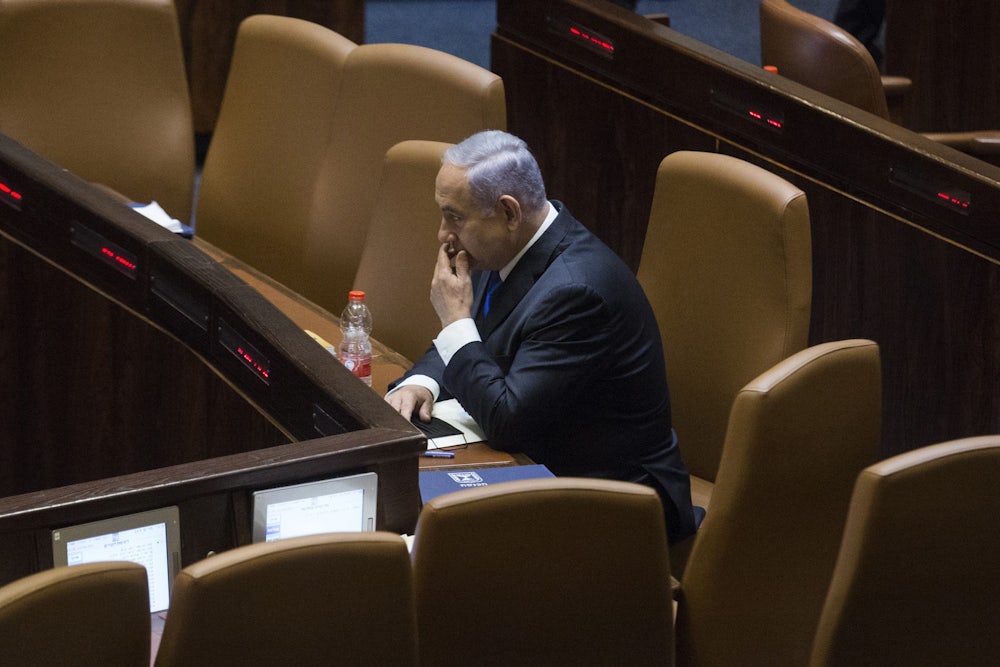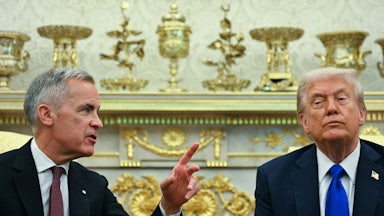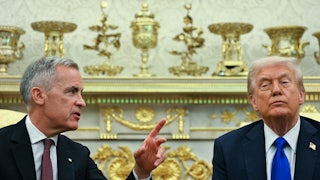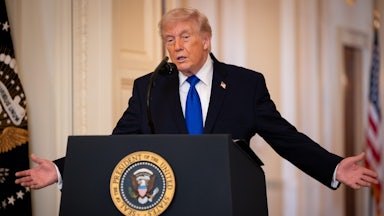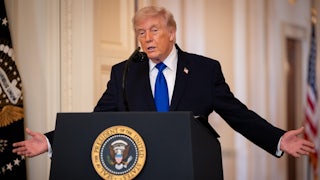Twenty or 15 years ago, maybe even 10, if you had told Israelis that by 2025 they would become ostracized, detested, and verging on being a pariah state, they would have dismissed you as delusional, anti-Israeli, a self-loathing Israeli, or just a spiteful merchant of doom. That can’t possibly happen. Yet it has.
Israel, Israelis believed, was a pioneer society that turned into a “start-up nation,” a center of technological innovation, agricultural ingenuity, scientific excellence, cutting-edge medical research and development, formidable military prowess, a booming economy that had tripled its gross domestic product per capita since the turn of the century. Israel was affluent. It was rich with artistic creativity, blessed with cultural wealth and diversity. It was self-assured and optimistic about the future despite the ongoing occupation of Palestine, the lack of any political solution, and the specter of a single binational state being formed by inertia and default. It was supported unequivocally by and aligned closely with the world’s only major superpower, the United States. Then came Benjamin Netanyahu, and here we are in 2025.
In the immediate aftermath of Hamas’s savage terror attack on Israel on October 7, 2023, the whole world stood behind Israel in support and an understanding that Israel would need to retaliate massively. But how, in less than two years, did a just war (jus ad bellum) turn into a harsh, vociferous criticism of how the war was waged (jus in bello) and total distrust of Israel in respect to justice after the war (jus post bellum)?
It wasn’t merely criticism of the prosecution of the war or alleged evidence of possible war crimes or the destruction and devastation of Gaza and the killing of 65,000 people. It was about how Israel acted in total disregard, derision, and casualness over what it had caused to Gaza. “We are being singled out hypocritically,” the sanctimonious reply predictably came. What about what Russia is doing in Ukraine? people defiantly asked. Good point. Russia is under severe sanctions but is also a member of the U.N. Security Council, so not a good analogy.
Israel is currently under unprecedented isolation. It is maligned, disparaged, and criticized all over the globe. A country that set itself to be “a light unto the Nations” is now regarded by many as a rogue state, led by an unhinged prime minister, intoxicated by and addicted to military force. A country that forfeited its moral high ground. Is all that true? Not entirely and not exactly, but generally, yes. This will be Benjamin Netanyahu’s lasting legacy, his indelible mark on Jewish and Israeli history. A man self-ordained as the protector of Jewish civilization and the modern state of Israel will go down as the man who inflicted on it severe damages and a reputational calamity in the world.
The Israeli attack on Doha, the capital of Qatar, targeting several Hamas political negotiators was not only a reckless act of political foolishness and a geopolitical blunder, but also constituted a total disregard for the most fundamental cost-effective analysis. It vindicated the detractors and allies alike who think that Israel has become a rogue state, suffering under a prime minister with acute delusions of grandeur who thinks he can remodel the Middle East with F-15 or F-35 jets and American indifference.
Netanyahu relishes this isolation. In fact, the entire nationalistic-religious-messianic right wing, his coalition partners and best political friends and ideological soulmates, predicate their entire worldview on this isolation. They don’t whine about it, but revel in it. For Netanyahu, it is a validation of his political creed: The world is antisemitic by nature; any criticism of Israeli policy is either (1) glaring and patent antisemitism, (2) gross ignorance of facts due to the teachings of the woke universities in the West, (3) the sheer hypocrisy of holding Israel to a different standard, or a combination of all three. He was bestowed by providence and history to be the one standing up for Jewish survival. When you believe that, and then turn it into a political handbook and a strategic guide, the road to a self-delusional messianic mindset is short.
“The world is against us” is a recurring theme in Jewish history. In Numbers 23:9, it is written that “lo, it is a people that shall dwell alone, and shall not be reckoned among the nations.”
“A people that shall dwell alone” has become a common phrase in Israeli political language. Victims for 2,000 years of exile, antisemitism, frequent discrimination, expulsions, the Spanish Inquisition, pogroms in Eastern Europe, and the Holocaust, it is understandable how and why Jews developed suspicions and existential anxieties. That is what Zionism strived to redress through proactive diplomacy meant to achieve a legitimate place among the nations. In this sense, Netanyahu is a diasporic, frightened pre-Zionist with a big Air Force. Nothing more.
Israel’s isolation is manifest not just in criticism and condemnation but in an active questioning of Israel’s normalcy as a country in the last two years. A Pew poll conducted in June found that in 20 of 24 countries surveyed, over half had an unfavorable view of Israel. Over 57 percent have a negative view of Israel in countries as diverse as Australia, Greece, Indonesia, Japan, the Netherlands, Spain, Sweden, and Turkey. In July, 25 countries, many that Israel considers traditional allies, such as Britain, France, and Canada, signed a joint communiqué demanding that Israel end the war. Netanyahu shrugged it off as typical hypocrisy with undertones of antisemitism.
The same Britain, France, and Canada also announced earlier in the summer their intention to recognize a Palestinian state. This symbolic recognition campaign—led by French President Emmanuel Macron—of a nonexistent future Palestinian state is the next ominous phase of Israel’s isolation.
Even before the 2023 war, 141 countries had already recognized a future Palestinian state as a political statement and a display of support. In May 2024, during the war in Gaza, Spain, Norway, Ireland, Slovenia, and Armenia announced recognition. That’s 146. At the U.N. General Assembly just underway in New York, France will be joined by Australia, New Zealand, Portugal, Belgium, Luxembourg, Finland, Malta, Andorra, and San Marino. That makes it 156 countries. The Netherlands, Sweden, and Japan announced that they are “considering” recognition, while the U.K., Canada, and Germany set conditions (e.g., a ceasefire) for such recognition.
That brings the total to 162 countries, out of 193 U.N. member-states, plus the Vatican and “Palestine,” which have an observer status. In more practical terms, three of the five U.N. Security Council members recognize a Palestinian state, one (the U.K.) is about to, and one (the U.S.) does not and will not.
Recognition of a Palestinian state can be dismissed as a political stunt, a declarative and symbolic act that has no bearing on reality. But there’s a critical mass forming, and the “recognition” campaign should be viewed as a manifestation of Israel’s growing isolation and its inability and unwillingness to have a constructive discourse with the world.
When Canada and Spain say they will “reexamine relations with Israel,” when Germany imposes an arms embargo, when Arab states are considering downgrading relations, and when polls in the U.S. show a clear decrease in support for Israel, you can’t hide behind self-righteous rhetoric. The European Commission President, Ursula Von der Leyen, said the EU is considering suspending trade agreements with Israel, imposing sanctions on extreme right-wing ministers who habitually use incendiary language, advocate ethnic cleansing and “flattening” of Gaza (and the West Bank), and have been accused of condoning what would amount to war crimes. The EU requires unanimity, which such decisions are unlikely to achieve, but individual countries are already acting. The EU is Israel’s biggest trade partner, with a volume of $50 billion annually.
All this adds up to a monumental diplomatic debacle of enduring consequences. Netanyahu has betrayed one of Israel’s and Zionism’s basic tenets: a place among the nations, recognition of Israel’s legitimacy. Isolation may be a good thing for Netanyahu, but it is disastrous for Israel.
